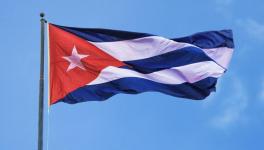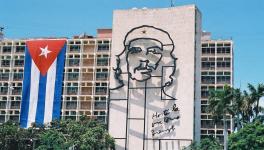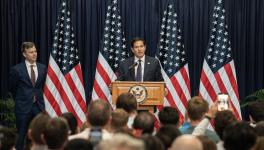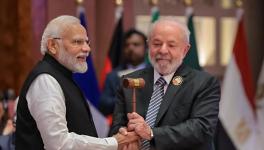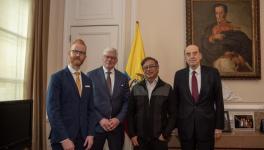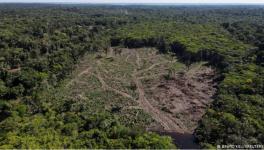Ten Questions About Internet Governance
On April 23 in Sao Paulo, Brazil, the “Global Multistakeholder Meeting on the Future of Internet Governance” which is also known as "NETmundial", in allusion to the global football event that will occur later in that country, will be convened.
According to the website of the event the meeting “will focus on crafting Internet Governance principles and proposing a roadmap for the further evolution of the Internet governance ecosystem." [1]
The organizers of the event have received 187 contributions with a variety of proposals, both for the set of Internet governance principles, as to the way forward for the evolution of the Internet governance ecosystem. [2]
But it is indisputable that the announcement by the United States government of its intention to transfer their functions with regard to the management of Internet domain names and addresses towards the "global multistakeholder community" will mark the debate at the event.
The US press release [3] says that this decision is taken to “support and enhance the multistakeholder model of Internet policymaking and governance”.
1) What exactly is the “multistakeholder model of Internet policymaking and governance”?
Although until now this question has not been answered, some consider that in this "model" the different actors: governments, the private or corporate sector, civil society and academia, participate on an equal footing, but this view is not consistent with the agreements reached at the World Summit on the Information Society, according to which states have the responsibility for public policy issues.
This aspect of the roles and responsibilities of the different actors regarding Internet governance was much discussed in both phases of the World Summit on the Information Society, finally reaching a definition thereof which was reflected in the final documents of the Summit. [4]
2) Will the definition agreed by the Heads of State and Government in the two phases of the World Summit on the Information Society on the roles and responsibilities of the different actors with regard to Internet governance no longer be valid?
If this is the case, as some advocate, then:
3) Will the dominant Internet companies have the same roles and responsibilities as States in Internet-related public policy issues?
Another question that arises is:
4) What will be the international Internet governance institutional framework?
And related to this:
5) What will be the role of the United Nations and its agencies such as the ITU, UNESCO, WIPO and the regional economic commissions?
Turning to substantive issues, many of the contributions submitted to the NETmundial appear the claim to defend the rights of Internet users to privacy and freedom of expression.
6) Will other equally important rights such as the right to development, the right to knowledge and the respect for the cultural and linguistic diversity and identity also be defended?
On the other hand, there exists a set of issues related to Internet governance that are barely mentioned in the submitted contributions and which are of interest to developing countries.
7) Will the issue of the inequity of the Internet economic model, where all payments flow from the underdeveloped countries towards the developed countries despite the fact that the information flows in both directions, be addressed?
8) Will the issue of the economic sustainability of Internet in the developing countries be examined, with the aim that the Internet itself could generate the resources for its development both of infrastructure and of contents?
9) Will the need to strengthen international collaboration and increase the amount of aid from developed to underdeveloped countries for the development of their Internet infrastructure be discussed?
There are many more questions that might be raised to be debated, but there is one that summarizes them all:
10) Will the commercialization of the Internet continue, turning the users into paying customers and promoting in an hegemonic a way single culture or will Internet become a tool for development, for human enrichment and the dissemination of cultural and linguistic diversity?
Juan Alfonso Fernández González is a Senior Advisor in the Ministry of Communications of Cuba and an Assistant Professor in the University of Informatics Sciences. He was a member of the United Nations Working Group on Internet Governance and participated actively in the negotiating process for the outcome documents of both phases of the World Summit on the Information Society.
Disclaimer: The views expressed here are the author's personal views, and do not necessarily represent the views of Newsclick
References:
[1] NETmundial. http://netmundial.br
[2] NETmundial contributions. http://content.netmundial.br/docs/contribs
[3] “NTIA Announces Intent to Transition Key Internet Domain Name Functions”, National Telecommunications and Information Administration (NTIA), Press release, March 14, 2014. http://www.ntia.doc.gov/press-release/2014/ntia-announces-intent-transition-key-internet-domain-name-functions
Get the latest reports & analysis with people's perspective on Protests, movements & deep analytical videos, discussions of the current affairs in your Telegram app. Subscribe to NewsClick's Telegram channel & get Real-Time updates on stories, as they get published on our website.









